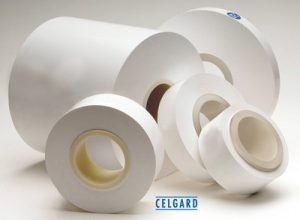
Following the United Kingdom (UK) court’s grant on May 7, 2020 of an interim injunction against Shenzhen Senior Technology Material Co., Ltd. (Senior) as requested by Celgard, LLC (Celgard), a subsidiary of Polypore International, LP (Polypore), the matter returned before the UK court on May 21, 2020. The court’s new order continued the effect of the interim injunction pending a further substantive hearing that will take place on an agreed date between June 29 and July 10, 2020. Senior provided an official letter to the Judge acknowledging its formal undertakings to the UK court. Celgard intends to pursue an injunction through trial of its trade secret case against Senior at the next hearing.
On April 30, 2020, Celgard filed an application for an urgent injunction against Senior in the High Court of Justice in London, England. On May 7, on an ex parte basis, the UK court granted an interim injunction to prevent Senior from importing certain battery separators into the UK.
Earlier on March 2, Celgard filed a Complaint against Defendants Shenzhen Senior Technology Material Co. Ltd. (Senior-China), Shenzhen Senior Technology Material Co. Ltd. (US) Research Institute (Senior-California), Xiaomin (Steven) Zhang, Sun Town Technology, Inc., Global Venture Development, LLC, and Global Venture Development, Inc. (collectively, Global Venture) (collectively, WDNC Defendants) in the U.S. District Court for the Western District of North Carolina (WDNC) for trade secret misappropriation, unfair and deceptive trade practices and unfair competition, civil conspiracy, unjust enrichment and conversion.
Additionally, Celgard filed a Second Amended Complaint against Defendants Shenzhen Senior Technology Material Co. Ltd. (US) Research Institute (Senior-California), Farasis Energy USA, Inc., Farasis Energy, Inc., Farasis Energy (Gan Zhou), Inc., and Farasis Energy (Gan Zhou) Co., Ltd. (collectively, Farasis), Sun Town Technology, Inc., Global Venture Development, LLC, and Global Venture Development, Inc. (collectively, Global Venture) (collectively, NDCA Defendants) for patent infringement, breach of contract and breach of implied covenant of good faith and fair dealing in the U.S. District Court for the Northern District of California (NDCA).
The WDNC Complaint alleges the WDNC Defendants, including a former Celgard employee, Xiaomin (Steven) Zhang, now CTO of Senior-China who changed his name to Bin Wang at the request of Senior-China, purposely and unlawfully misappropriated Celgard’s trade secrets and confidential information and continue to do so. Several other violations of the law are also alleged.
The NDCA Second Amended Complaint alleges the NDCA Defendants infringe Celgard’s United States Reissued Patent RE47,520 (the ‘520 patent), formerly United States Patent 6,432,586 (the ‘586 patent), on ceramic coated separators, and Celgard’s United States Patent No. 6,692,867 (the ‘867 patent), on polypropylene separators, as well as several other violations of law and breaches. See Release.
In December 2019, Celgard filed a First Amended Complaint in the NDCA adding to the suit the Defendants Farasis, Sun Town, and Global Venture. See Release.
In September 2019, Celgard filed suit against Senior who sells separators globally that they make in Shenzhen, China. Celgard’s Complaint alleges Senior has infringed Celgard’s U.S. ‘520 and ‘867 patents on ceramic coated and polypropylene separators, and has unlawfully misappropriated and misused Celgard’s trade secrets and confidential information, among other violations and seeks compensation for damages. See Release.
In September 2019, Celgard successfully settled a patent infringement lawsuit against Targray International. See Release. Celgard also successfully settled two suits in June 2019, against MTI Corporation. See Release.
The effective extension of the interim injunction and the successful outcome of the Targray and MTI cases further solidifies the integrity of Celgard’s intellectual property (IP) regarding coated and uncoated separators for lithium-ion batteries. Celgard will continue to prevent the unfair exploitation of its technology and IP to safeguard its assets and customers.
